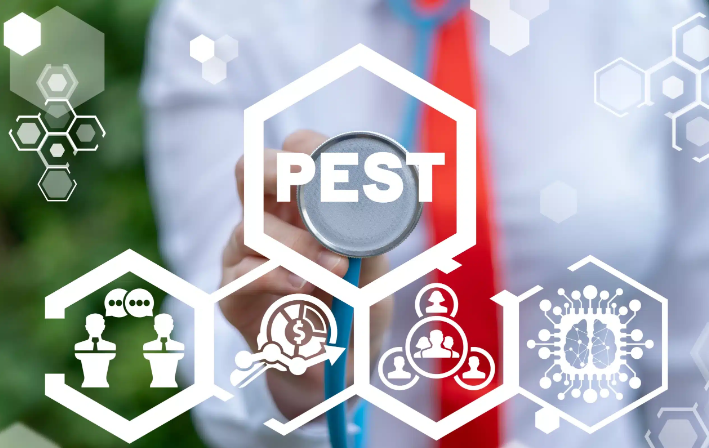When it comes to protecting your home, few threats are as insidious as termites. These tiny pests can wreak havoc on your property without you even noticing until it’s too late. That’s why understanding pest control and implementing preventive strategies is essential for homeowners everywhere. With the right knowledge and tools at your disposal, you can keep these destructive invaders at bay.
But what exactly does effective pest control entail? From recognizing different types of pests to employing various extermination methods, there’s a lot to unpack. In this blog post, we’ll dive deep into the world of termites exploring their habits and risks to help you better understand how to protect your most valuable asset: your home.
Get ready to learn about traditional extermination methods and discover the rise of preventive pest control. We’ll also explore organic solutions that prioritize health alongside effectiveness. Whether you’re considering DIY approaches or seeking professional services like Carolina Exterminating, we’ve got tips that will empower you in maintaining a pest-free environment.
Join us on this journey toward making sure termites don’t stand a chance against your home!
Understanding Termites: Habits and Risks
Termites are often referred to as silent destroyers. They consume wood and other cellulose materials, quietly wreaking havoc on structures.
These pests primarily thrive in warm, damp environments. They build colonies underground or within wooden structures. This makes them hard to detect until significant damage has occurred.
A termite colony can contain thousands of members. Worker termites tirelessly search for food sources, while soldier termites protect the queen and young. Their teamwork allows them to invade homes without notice.
The risk associated with termites is substantial. A single infestation can lead to extensive property damage that may cost homeowners thousands in repairs. Understanding their habits is essential for prevention and control measures.
Recognizing early signs like mud tubes or discarded wings can save you time and money later on. Awareness is your first line of defense against these destructive insects.
The Rise of Preventive Pest Control: Benefits and Effectiveness
Preventive pest control has gained significant traction among homeowners seeking long-term solutions. Instead of waiting for infestations to strike, proactive measures are now the focus.
This approach emphasizes regular inspections and maintenance. Homeowners can identify vulnerabilities before pests take hold. By addressing potential issues early, damage and costs can be substantially reduced.
Moreover, preventive strategies often utilize eco-friendly methods. This is a game-changer for families concerned about chemical exposure. It promotes a healthier living environment while keeping unwanted critters at bay.
The effectiveness of these practices cannot be overstated. Many find they lead to fewer outbreaks over time, saving both money and stress in the process. Investing in prevention truly pays off as peace of mind becomes part of homeownership routines.
Organic Pest Control Solutions for a Healthier Home
Organic pest control solutions offer a safer alternative for homeowners concerned about chemicals. These methods prioritize natural ingredients, creating a healthier living environment.
Essential oils, like peppermint and tea tree oil, are effective repellents. They not only deter pests but also leave your home smelling fresh.
Diatomaceous earth is another powerful ally. This fine powder damages the exoskeletons of insects upon contact, leading to dehydration and eventual elimination.
Introducing beneficial insects can restore balance in your garden or yard. Ladybugs and lacewings prey on aphids and other harmful pests without harming plants.
Regular cleaning is essential too. Keeping spaces free of crumbs and clutter minimizes pest attraction naturally.
Consider companion planting as well. Certain plants repel unwanted insects while enhancing growth for nearby crops, making it an eco-friendly choice for gardens.
DIY vs. Professional Pest Control Services
When it comes to pest control, the DIY approach can be tempting. Many homeowners believe they can tackle infestations with a few store-bought products and some online research. While this may work for minor issues, it often falls short against more persistent pests like termites.
On the other hand, professional services bring expertise and experience to the table. Trained technicians understand pest behavior better than most DIY guides offer. They assess your home’s unique needs and apply targeted strategies that are often more effective.
Moreover, professionals use specialized equipment and treatments that aren’t available in local stores. This ensures a deeper penetration into hard-to-reach areas where pests may hide.
Cost is another consideration. While DIY might seem cheaper upfront, ongoing infestations can lead to higher long-term expenses if not properly managed from the start. Investing in professionals could save you money down the line by preventing damage before it occurs.
Tips for Maintaining a Pest-Free Home
Keeping your home pest-free requires vigilance and a proactive approach. Start by sealing any cracks or gaps in windows, doors, and foundations. This simple step can prevent unwanted guests from making themselves at home.
Regularly inspect your property for standing water. Mosquitoes breed quickly in stagnant water, so ensure gutters are clear and containers are emptied frequently.
Maintain cleanliness inside the house as well. Store food in airtight containers to deter ants and other pests looking for an easy meal. Regular vacuuming also helps eliminate crumbs that attract insects.
Don’t overlook outdoor maintenance either. Trim bushes and trees away from the house to reduce pathways for pests like termites or rodents.
Finally, consider introducing natural repellents such as essential oils or plants known to repel insects into your living space. These not only add beauty but can help keep bugs at bay too.

